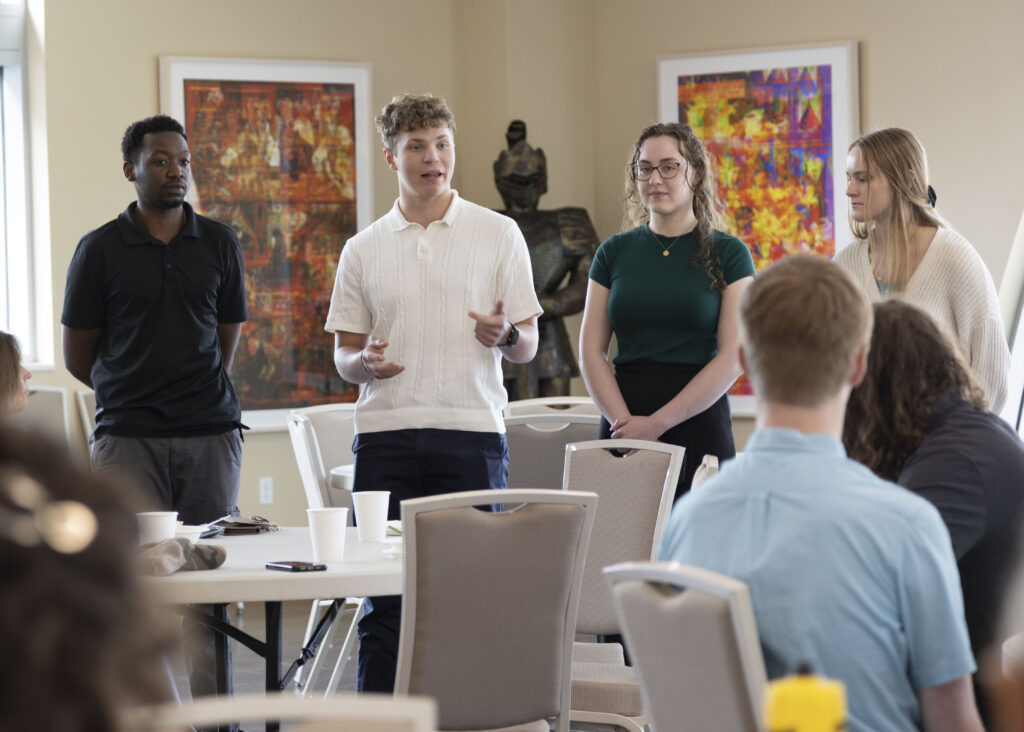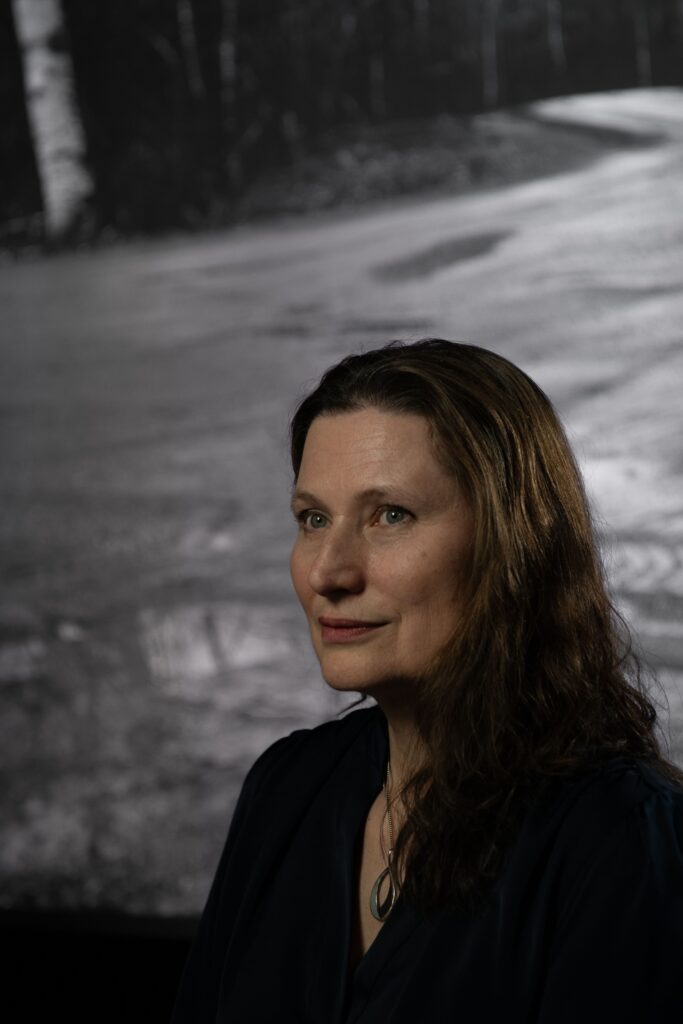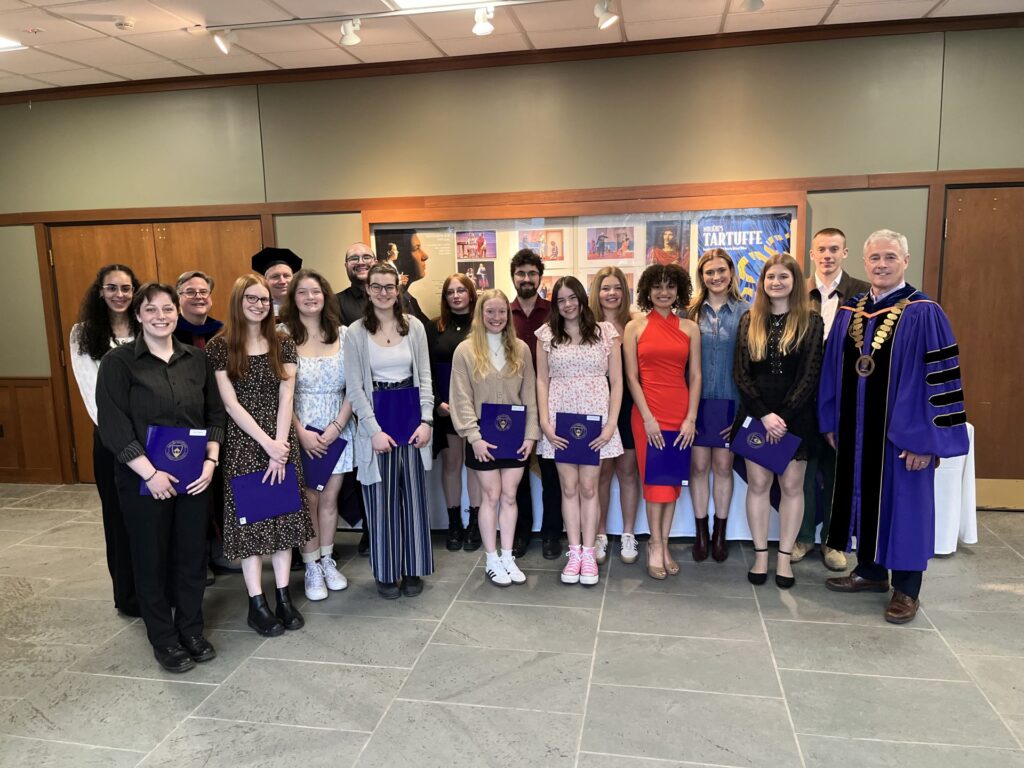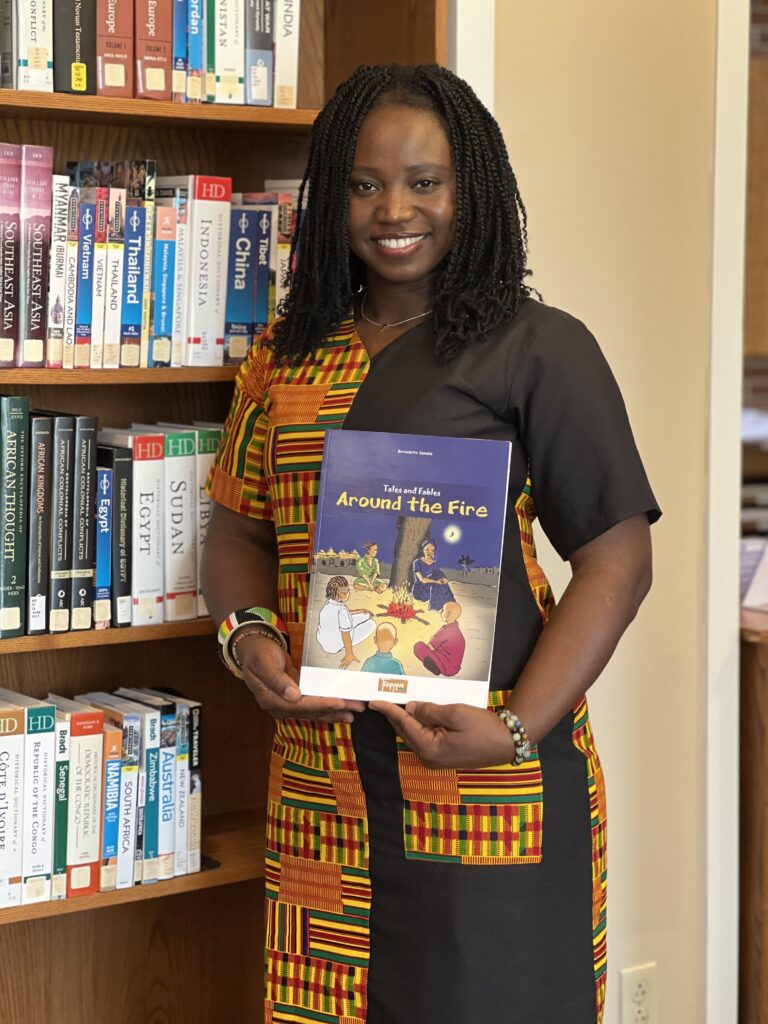Liberal arts majors immerse students in human experience — Part 3
Department heads in religious studies, anthropology & sociology, history discuss practical, intangible payoffs in their fields
Liberal arts colleges all over the country have been struggling to keep enrollment numbers up over the past few years, leading to a particular growing emphasis on definitive paths to careers. However, liberal arts colleges such as Saint Michael’s College prepare students not only with the knowledge they will need to apply in their eventual professional fields, but also with the important “soft skills” sought out by virtually every potential employer.
Religious Studies Major/Minor
Department Chair and Religious Studies Professor Raymond Patterson
Professor Ray Patterson of the Religious Studies Department shares that, in tandem with Saint Michael’s College’s mission to facilitate the teaching of greater global competency and inclusivity, the understanding of religion is “crucial for successful interactions,” and “essential to being a true global citizen.”

Professor Raymond Patterson
The Saint Michael’s College Religious Studies Department is not limited to the study of Catholicism despite the Edmundite tradition of the College. “The rich diversity of religious traditions are represented by our courses,” said Patterson, “including courses on Hinduism, Buddhism, Judaism, Islam, and other Christian denominations.”
The strong foundation religious studies provides its students in areas like communication and critical thinking are on par with other liberal arts majors, he said. “The ability to research, organize, write, and present on any topic is crucial to success in any field, and the religious studies major provides those experiences in abundance,” said Patterson.
“For a small department, our success rate with top Religious Studies or Theology graduate programs is truly remarkable,” said Patterson. “In the past dozen years we have had RS graduates receive doctoral degrees from Princeton, Brown, Catholic University, and Cambridge (UK), and master’s degrees from Harvard, Yale, Oxford (UK), Notre Dame, Boston College, Temple, Emory, Dayton, and the University of Chicago.” Patterson also shared the fields into which many religious studies graduates go, including business, law, journalism, technology, health care, primary and secondary education, and higher education as well a number who have become pastors, chaplains, and even campus minsters.
The religious studies program at Saint Michael’s College gives graduates the “value added” factor that can make or break graduate school and job interviews, as well as personal depth in relationships from acquaintances to prospective employers.
Anthropology & Sociology Major/Minor
Department Chair and Sociology & Anthropology Professor Adrie Kusserow
Professor Adrie Kusserow praised the Anthropology and Sociology Department at Saint Michael’s College for itscommitment to Community Engaged Learning, social justice orientation in the local community as well as globally, and their promotion and commitment to the office for Mobilization of Volunteer Efforts (MOVE) on campus. “The department really aligns itself very much with the College’s emphasis on purposeful living as well as its Catholic Mission,” Kusserow said.

Professor Adrie Kusserow
“The Sociology Anthropology Department does Community Engaged Learning, where students in a class, for example are paired with local refugees and they visit them in their homes once a week to help with computers or English language, etc.,” said Kusserow. “Our ability to conduct research on, and think critically about the relationships between products, technology, the economy, and humans makes anthropologists and sociologists valuable in the booming technology industry.”
The range of courses available through the Sociology and Anthropology Department are diverse and applicable to many different areas of study. “Many of our classes count toward a great deal of other social science majors like Equity Studies, Criminology, Public Health, International Relations, and Global Studies,” said Kusserow. The diversity in coursework opens students in this field to multiple job opportunities such as journalist, social work, government, education, museum curation, international development, technology, publishing, and marketing. The soft skills taught by the Sociology and Anthropology Department are critical thinking, effective writing and general communication skills, research skills, data analysis, and most importantly, empathy.
“If you have a love for learning, and are interested in issues of social justice, find yourself relentlessly curious, or seek to unravel the complexities of our world, then majoring in sociology and anthropology is for you!” said Kusserow.
History Major/Minor
Department Chair and History Professor Jennifer Purcell
Professor Jennifer Purcell of the History Department at Saint Michael’s College lauded the History Department for its commitment to studying the multifaceted aspects of history. “History, as taught at Saint Michael’s College, is about the study of human experience,” said Purcell. “We think about, ask questions about, and study the impact of class, gender, and race on human experience, choice, and agency across time.”
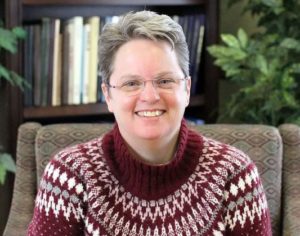
Professor Jennifer Purcell
Humorously, Purcell emphasized that being a history major “does not mean that you have to become a history teacher!” There are multiple fields of work for which history majors will be qualified by the time they graduate. “Students majoring in history go on to be successful in a number of different areas, from the private to the public sectors, corporations, and non-profits,” Purcell said. “Many majors go on to pursue careers in law, libraries, museums, archives, marketing, sales, financial consulting, and publishing.” Saint Michael’s College has had history majors go on to become “journalists, broadcasters, FBI agents, firefighters, EMTs, politicians, political consultants, park rangers, and entrepreneurs.”
“If you’re interested in human experience now and/or in the past,” Purcell said, “there’s no better major or minor in the liberal arts.”

